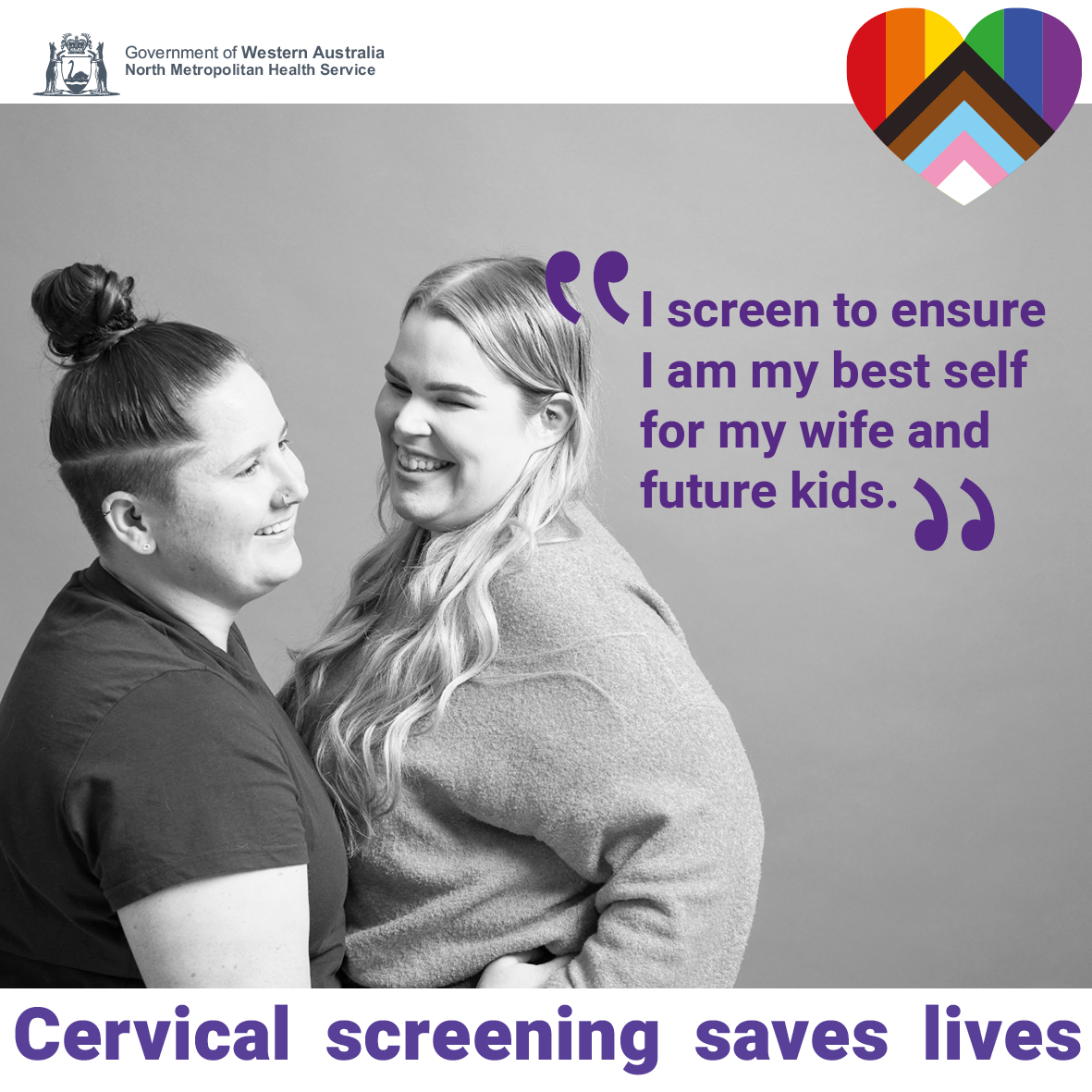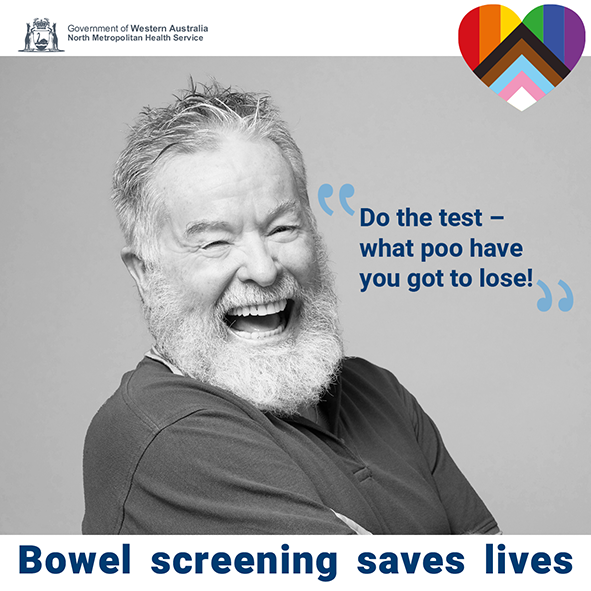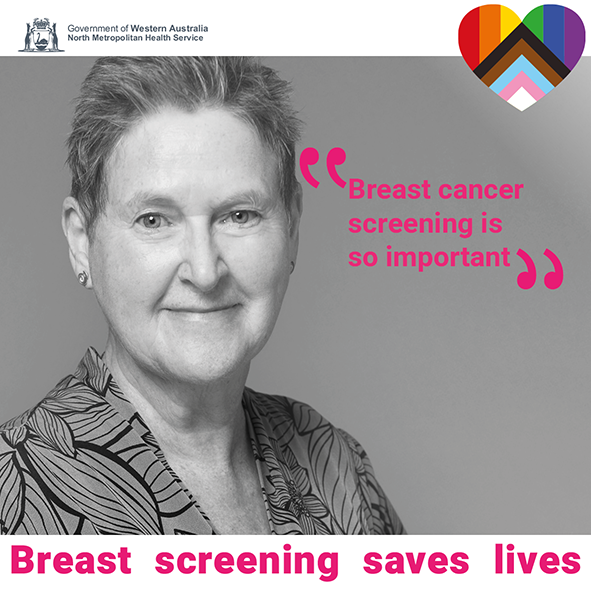Closing the Gap - Screening saves lives

This year the World Cancer Day 2022 theme is “Close the care Gap”, and WA’s cancer screening program teams for bowel, breast and cervical have joined forces to share the message that ‘Screening saves lives’, with new resources focusing on the LGBTIQ+ community.
The LGBQTI+ community is somewhat resistant to seeking medical help out of fear and are an under screened community and the aim is to increase awareness of, and participation in, these lifesaving programs.
A collaboration between BreastScreen WA, the National Bowel Cancer Screening Program, and the WA Cervical Cancer Prevention Program has been created as a direct response to this, with advocacy work and communication being undertaken in the background to ensure acceptance and understanding is in place more widely.
The first of the materials was seen at the PRIDE Fair in November, featuring community members from across the spectrum. Individuals have been passionate about getting behind the screening message, lending themselves to a photo shoot and personal stories.
Kathleen O’Connor, Manager at WA Cancer & Palliative Care Network - Clinical Implementation Unit, said that there has been a lot of input from the LGBTQI+ community:
“Improving screening participation is vital for these preventable cancers, yet screening rates amongst the LGBTIQ+ community are lower than the general population. Screening provides the chance to detect cancer at an earlier, more treatable stage, or in some cases prevent the cancer from developing.
“Having local community representation from the target audience has taken this campaign to a higher level of relevance and authenticity. The reception at Fairday showed the materials really resonate and connect, which is our aim”
These resources will be used throughout the year to target key dates in the LGBTIQ+ community calendar to increase screening participation and promote inclusion. During these challenging times for health and self-care, it is imperative to remember that screening saves lives. Don’t delay screening – it could save your life!



